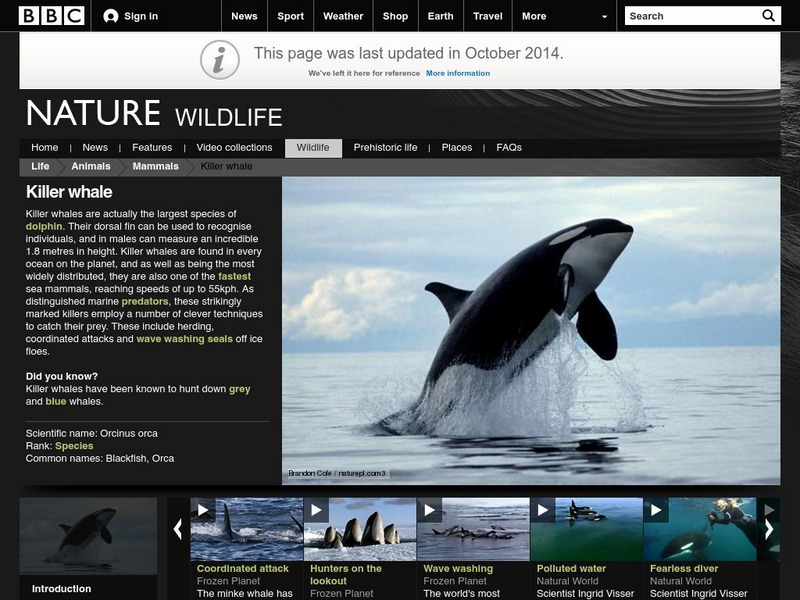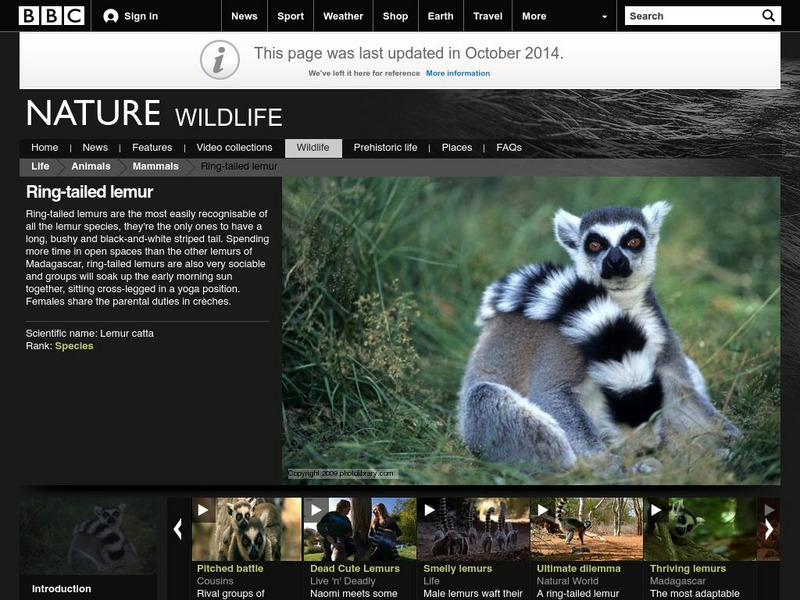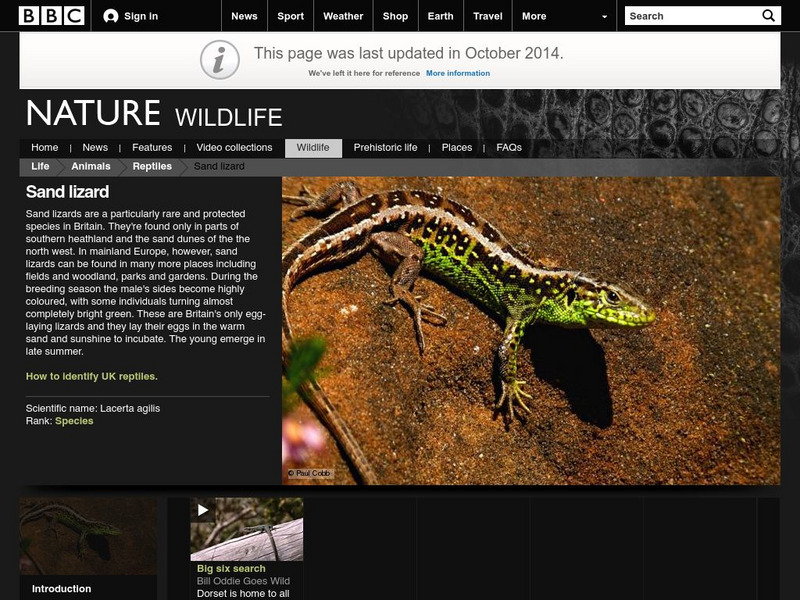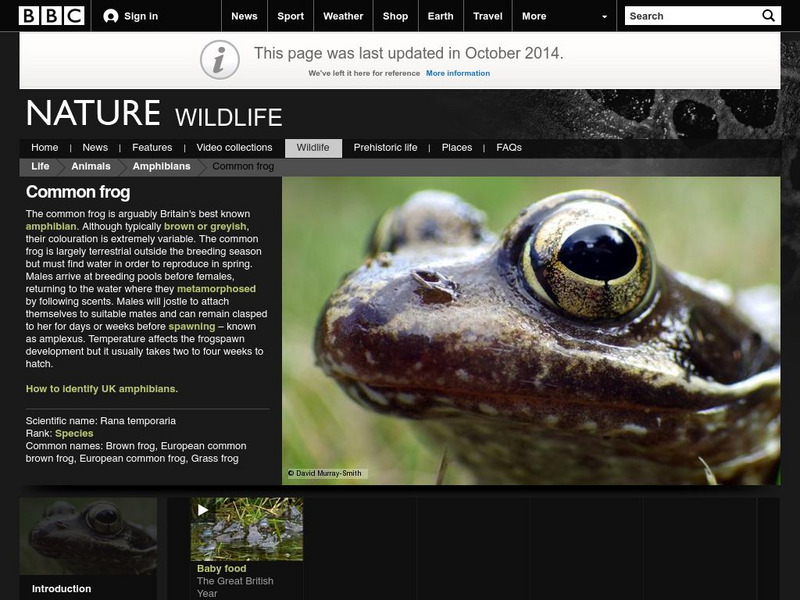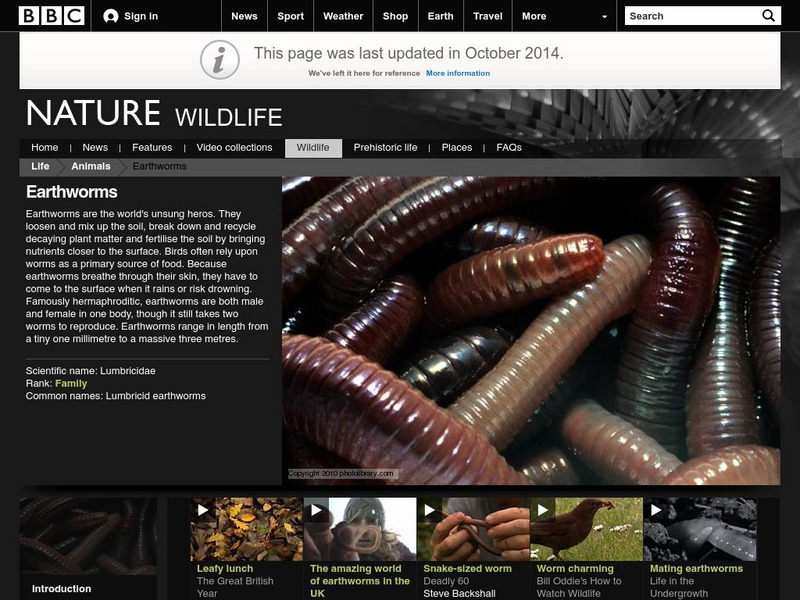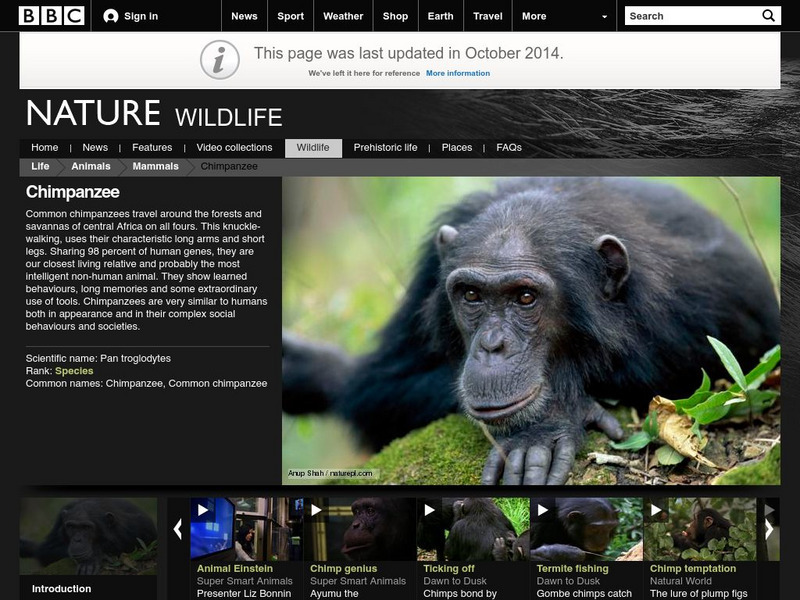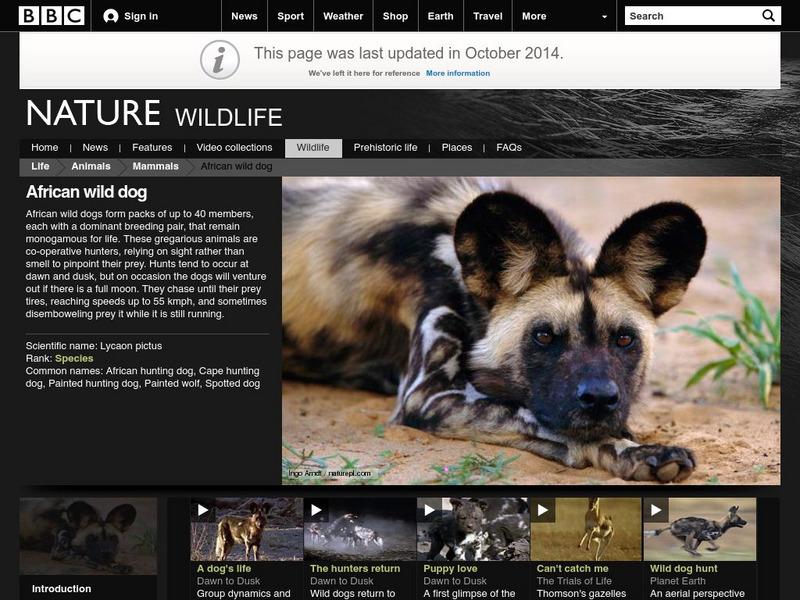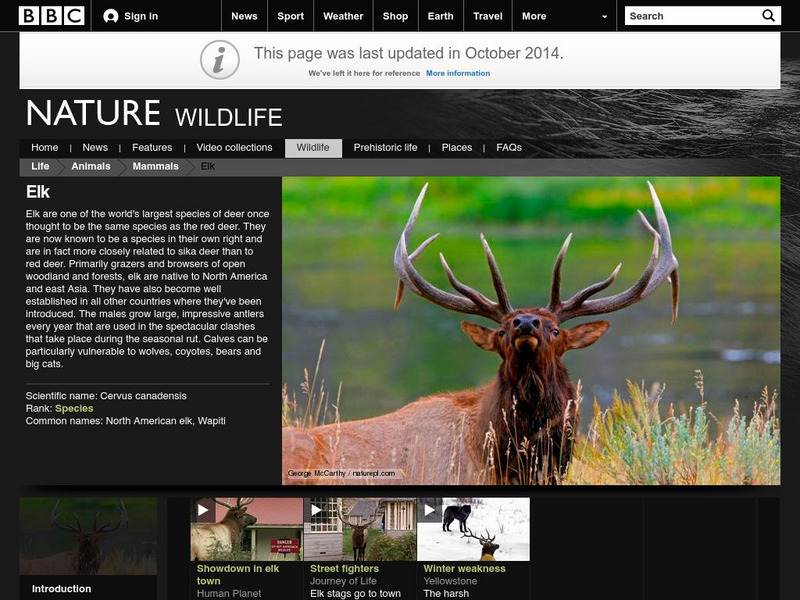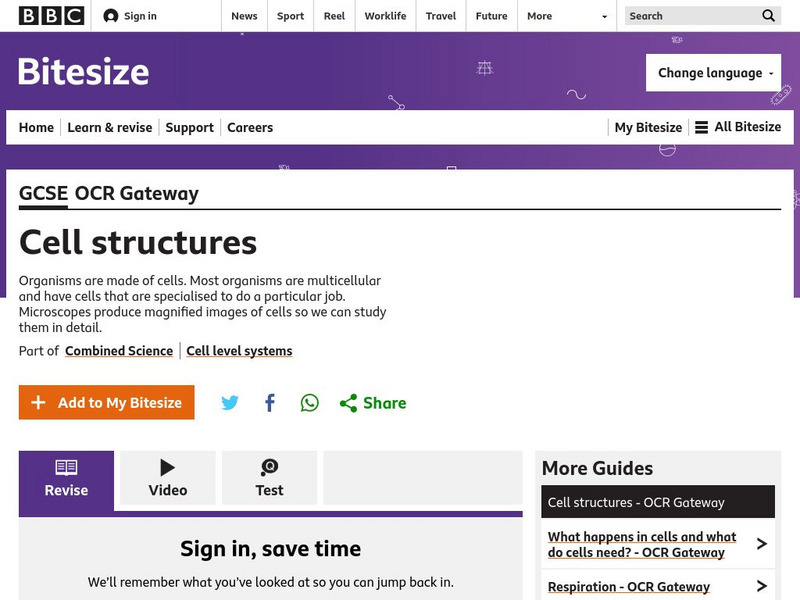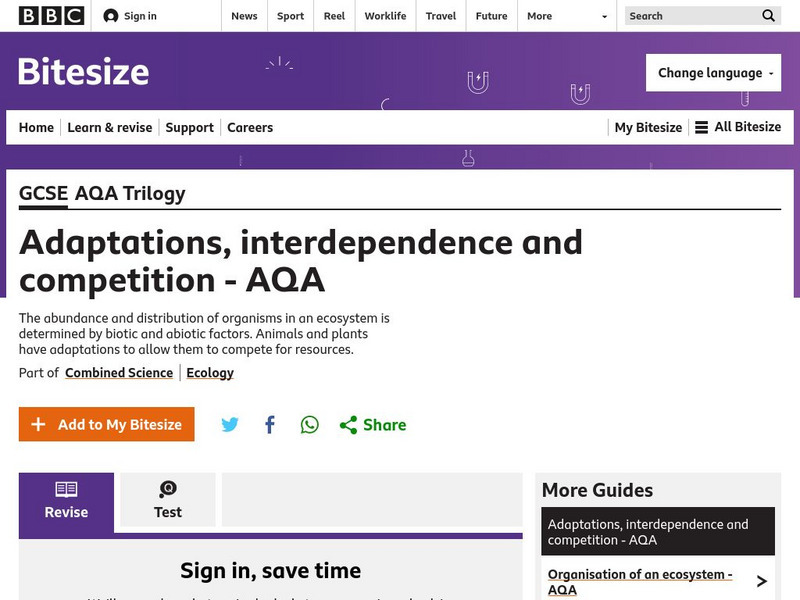BBC
Bbc: Nature Wildfacts: Ring Tailed Lemur
This resource provides information about ring-tailed lemurs.
BBC
Bbc: Nature Wildfacts: Savannah Elephant
This resource provides information about Savannah elephants.
BBC
Bbc: Nature Wildfacts: Dung Beetle
Learn what ancient Egyptians thought about this peculiar insect. This resource has a detailed fact sheet to learn more about the history and physiology of the Dung Beetle.
BBC
Bbc: Nature: Wildlife: Common Frog
Use this site to learn all about the life of a frog. Read this detailed fact sheet and examine these photos for further information.
BBC
Bbc: Nature Wildfacts: Clouded Leopard
To learn more about this particular leopard, examine these photos and study the detailed fact sheet.
BBC
Bbc: Nature Wildfacts: Common Earthworm
Before you go looking for an earthworm, learn more about it from this detailed fact sheet and from these close-up photos.
BBC
Bbc: Nature Wildfacts: Capybara
Use this site to see photos of this rodent of unusual size. Be sure to read the detailed fact sheet to learn more.
BBC
Bbc: Nature Wildfacts: Chimpanzee
Here are some photos adult and young chimpanzees. There is also a detailed fact sheet.
BBC
Bbc: Bitesize: Music of Africa
This site is a part of the About Music site of the BBC, and this interactive site lets you explore various parts of Africa, their music, their instruments, their sounds. Requires Real Player.
BBC
Bbc: Applied Anatomy and Physiology: Muscles and Movement
Learn what muscles are, how they are classified, and how they are attached to the body's skeletal system. This site contains several definitions, illustrations showing the parts of muscles, and a quiz to test your knowledge of muscles...
BBC
Bbc: Ks2: Who Were the Ancient Greeks?
About 2,500 years ago, Greece was one of the most important places in the ancient world. The Greeks were great thinkers, warriors, writers, actors, athletes, artists, architects and politicians. The name 'Greeks' was given to the people...
BBC
Bbc: Science and Nature: Prehistoric Life: Sea Monsters Adventure Game
Learn about prehistoric sea creatures by playing this entertaining online game. A variety of skills are needed as you move through geologic time and encounter different sea creatures.
BBC
Bbc Nature Wildfacts: African Wild Dog
These wild pack animals use unique individual markings to recognize each other. Read this outline of facts and look at some images to learn more.
BBC
Bbc Online: Puma, Florida Panther
At this site from BBC Online you can learn all about the Puma with this detailed fact sheet and these spectacular photos. There is also a short video of the Puma.
BBC
Bbc: Gcse Bitesize: Cell Division Aqa
Chromosomes carry genetic information in a molecule called DNA. A type of cell division called mitosis ensures that when a cell divides each new cell produced has the same genetic information.
BBC
Bbc: Gcse Bitesize: Supplying the Cell
For an organism to function, substances must move into and out of cells. Three processes contribute to this movement - diffusion, osmosis and active transport. Diffusion is the process by which useful materials and waste products move in...
BBC
Bbc: Gcse Bitesize: Electric Circuits
Current transfers energy around circuits. Circuit components have various properties that can be measured and then used to make circuits for control and also circuits for testing other components.
BBC
Bbc: Gcse Bitesize: Evolution Aqa
Evolution is the change of inherited characteristics within a population over time through natural selection, which may result in the formation of a new species. Fossils provide a record of organisms that lived a long time ago. They also...
BBC
Bbc: Gcse Bitesize: Genetic Inheritance Aqa
Our genes are inherited from our parents, and the different combinations of these genes make us unique. Genetic inheritance controls the characteristics of all living things. This lesson focuses on the inheritance of biological sex in...
BBC
Bbc: Gcse Bitesize: Cell Structures
Organisms are made of cells. Most organisms are multicellular and have cells that are specialised to do a particular job. Microscopes produce magnified images of cells so we can study them in detail. This lesson focuses on animal cells.
BBC
Bbc: Gcse Bitesize: Adaptations, Interdependence and Competition Aqa
The abundance and distribution of organisms in an ecosystem is determined by biotic and abiotic factors. Animals and plants have adaptations to allow them to compete for resources.


